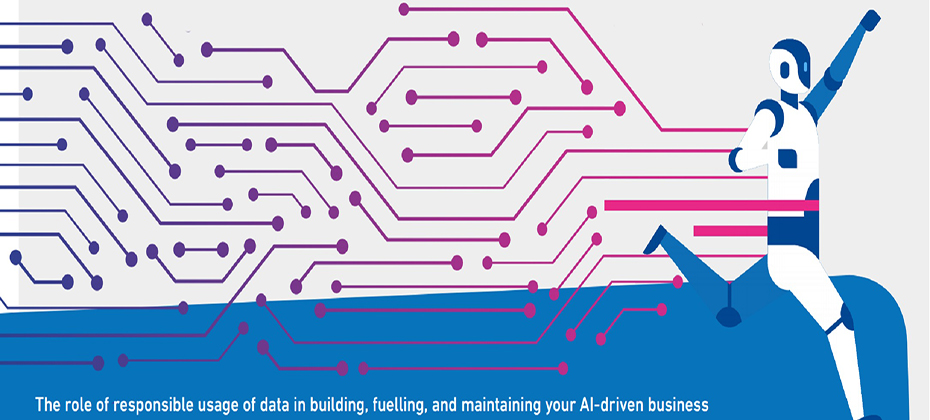
At Experian, we often say our people are our biggest superpower – and today, I’m thrilled to share that this belief has been recognised once again. Experian has been named one of the 2025 World’s Best Workplaces™ by Fortune and Great Place to Work® for the second year in a row.
This achievement reflects the culture we’ve built together – one that’s welcoming, inclusive, and rooted belonging. It’s a celebration of every colleague who brings their whole self to work, who lifts others up, and who powers opportunities for our clients, consumers, and communities.

We’ve made it our mission to create a workplace where everyone feels included, respected, and empowered. That’s why we’re proud to have earned top scores on the Corporate Equality Index and the Disability Equality Index, and to be recognised with the Outie Award for Workplace Excellence and Belonging.
These recognitions matter. But what matters most is how our people experience life at Experian. Whether it’s collaborating, innovating, or growing through world-class development of products, services and contributing to our communities, our culture is designed to help everyone thrive.
We’ve also made bold commitments to career development. Initiatives like Global Careers Week, the AI-driven performance coach Nadia, and the NextGen Forum – a global leadership development programme for emerging talent from across our regions – give our people the resources to take charge of their growth and build a “One Experian” mindset.
Being named one of the World’s Best Workplaces is a moment to celebrate but also a reminder to keep aiming higher. The world of work is evolving fast, and so are we. From embracing AI to enhancing our digital workplace experience, we’ll continue to push forward and listen to our people every step of the way.
Questions we will discuss:
- What does “retirement readiness” mean to you, and how can someone tell when they are financially ready to retire?
- Is there a magic number for retirement savings, and what factors should someone consider when setting a retirement goal?
- How can someone estimate their retirement expenses realistically?
- What are some common myths or misconceptions about how much money you need to retire?
- How should Gen Z, Millennials, and Gen Xers each approach retirement planning differently based on their stage of life?
- What are the biggest obstacles people face when trying to save for retirement, and how can they overcome them?
- How can you balance saving for retirement with paying off debt or supporting family today?
- What tools, calculators, or strategies can help people figure out if they’re on track for retirement?
- How can people prepare for unexpected costs or life changes that could impact their retirement plans?
- What’s one piece of advice you’d give someone just starting—or restarting—their retirement savings journey?
| Columns 1 | Column 2 | Column 3 | Column 4 |
|---|---|---|---|
| Row 1 Col 1 | |||
| Row 2 Col 1 | |||
| Row 3 Col 1 | |||
| Footer 1 | Footer 2 | Footer 3 | Footer 4 |

Credit Chat
Stretching your Dollars: Practical Tips to Cut Costs and Save More
February 5, 2025 3-4 PM ET
- What does “retirement readiness” mean to you, and how can someone tell when they are financially ready to retire?
- Is there a magic number for retirement savings, and what factors should someone consider when setting a retirement goal?
- How can someone estimate their retirement expenses realistically?

Greater transparency in buy now, pay later activity is key to helping consumers build their credit histories and supporting responsible lending. We have members of the military right now right out of high school and there’s not a lot of experience managing their own money. They’re quickly thrust into a place where they don’t have a support system to do that. We have members of the military right now right out of high school and there’s not a lot of experience managing their own money. They’re quickly thrust into a place where they don’t have a support system to do that. We have members of the military right now right out of high school and there’s not a lot of experience managing their own money. They’re quickly thrust into a place where they don’t have a support system to do that. We have members of the military right now right out of high school and there’s not a lot of experience managing their own money. They’re quickly thrust into a place where they don’t have a support system to do that. We have members of the military right now right out of high school and there’s not a lot of experience managing their own money. They’re quickly thrust into a place where they don’t have a support system to do that.
Experian North AmericaScott Brown, Group President, Financial Services

We’re delighted to have been named as one of Britain’s ‘Most Admired Companies’ (BMAC) in Management Today’s annual survey, coming 21st in a list of nearly 250 leading firms from a variety of sectors, and taking third place in the ‘Business Support Services’ sector. Our 17,000 colleagues around the world work hard every day to service and power opportunities for our customers and this award is testament to the commitment they bring to our business every day. The hard work doesn’t stop here. We continue to strive for the highest standards across our global organisation, and we remain committed to delivering the very best services that can empower millions of people to stay in control of their finances, and help businesses meet the needs of their customers. For further information on BMAC, the winners and the methodology, please see: https://www.managementtoday.co.uk/bmac

In today's fast-paced markets, businesses of all sizes strive for an edge over competition, especially when it comes to wining over consumers' hearts and minds. Many find that competitive advantage in the way they apply artificial intelligence to improve their customer decision-making for high business performance. Data strategies for high-performance decisioning In today's fast-paced markets, businesses of all sizes strive for an edge over competition, especially when it comes to wining over consumers' hearts and minds. Many find that competitive advantage in the way they apply artificial intelligence to improve their customer decision-making for high business performance.In fact, recent research we commissioned from Forrester Consulting shows that this. The ability to make meaningful decisions that match your customer's context at a given point in time requires a solid understanding of their needs and goals. Having access to relevant data is essential to consistently deliver experiences that matter. Timing and availability of data is equally important to improving your customer-level decision-making; to make those sought-after better, contextual decisions, you need to have the pertinent data available at the right place and time to meet that given consumer's moment of need. For example, in an operational environment, this may translate into accessing the right type, amount and quality of data in real time, so you are able to respond how and when your customer expects. The role of responsible usage of data in building, fuelling, and maintaining your AI-driven business The energy needs of athletes exceed those of the average person. Similarly, in the AI world, data (nutrient) needs for high-performance require consistent markers over a long period of time. Data scientists looking after credit and fraud risk would use the same variables or 'nutrients' that have been traditionally used for conventional scorecard developments to fuel machine learning methods to build predictive models. These are 'proteins' such as application data, any behavioural data your business has on existing customers, credit bureau data, segmentation data, available public information or transaction data. Some trended economic data can be used as input for developing credit risk methods and governance to fit leading financial reporting standards and frameworks (think of IFRS 9 or Basel, for example). Similarly, to assess affordability, you will need to feed your algorithms with disposable income over your customers' lifetime plus data about how they use it. Financial data about customers' savings, and investments allows for more accurate risk management while property related info derived from rental data is useful for extending personalised credit offers. Meanwhile, more and more businesses are using speech and text data obtained through voice recognition to improve the collection process. In fact, recent research we commissioned from Forrester Consulting shows that this 'race for the customer' comes down to who knows them best. The ability to make meaningful decisions that match your customer's context at a given point in time requires a solid understanding of their needs and goals. Having access to relevant data is essential to consistently deliver experiences that matter. Timing and availability of data is equally important to improving your customer-level decision-making; to make those sought-after better, contextual decisions, you need to have the pertinent data available at the right place and time to meet that given consumer's moment of need. For example, in an operational environment, this may translate into accessing the right type, amount and quality of data in real time, so you are able to respond how and when your customer expects. The role of responsible usage of data in building, fuelling, and maintaining your AI-driven business The energy needs of athletes exceed those of the average person. Similarly, in the AI world, data (nutrient) needs for high-performance require consistent markers over a long period of time. Data scientists looking after credit and fraud risk would use the same variables or 'nutrients' that have been traditionally used for conventional scorecard developments to fuel machine learning methods to build predictive models. These are 'proteins' such as application data, any behavioural data your business has on existing customers, credit bureau data, segmentation data, available public information or transaction data. Some trended economic data can be used as input for developing credit risk methods and governance to fit leading financial reporting standards and frameworks (think of IFRS 9 or Basel, for example). Similarly, to assess affordability, you will need to feed your algorithms with disposable income over your customers' lifetime plus data about how they use it. Financial data about customers' savings, and investments allows for more accurate risk management while property related info derived from rental data is useful for extending personalised credit offers. Meanwhile, more and more businesses are using speech and text data obtained through voice recognition to improve the collection process.

To stay ahead of the competition and on the path of sustained growth, you need clear line of sight to both risks and opportunities through the customer lifecycle. Gaining better insights on customers is critical to achieving that, so you can make all the right decisions, big and small, about your customers and business clients. Based on the conversations we have with our clients, we have noticed that most executives are paying a lot of attention to measuring customer experience and reducing friction across digital touch-points through the lifecycle. For customer acquisition, for example, businesses like yours look at time spent on each micro-step (e.g. data field), dropout rates at each of those steps, and do A/B testing at a very granular level. The idea is to understand all points of friction including points of confusion, frustration, etc., so you can learn from those and improve the experience. But this is not an easy task. The various challenges involved are making sense of the vast quantities of data and the immaturity of that data as well as the construct of that data. Given the fast pace at which data analytics change and evolve, our recommendation is that you invest in tools that are data and/or analytics agnostic. Thinking ahead: leveraging data analytics and cloud-based decisioning platforms to design the right customer treatment There is a largely untapped opportunity to leverage data, analytics, optimisation and decision management solutions – such as cloud-based decisioning platforms – to design the right customer treatment and identify the next best action for that customer. Selecting the appropriate timing, medium, and channel for those actions lead to greater consistency and contribute to having more relevant communications with your customers. The more relevant you are, the more precise you are with the offers and the treatments leading to improved response rates, greater connectivity and interaction with the customer. This results in memorable experiences that enhance loyalty and drive profitability.
2024 Best Place to Work for Disability Inclusion


